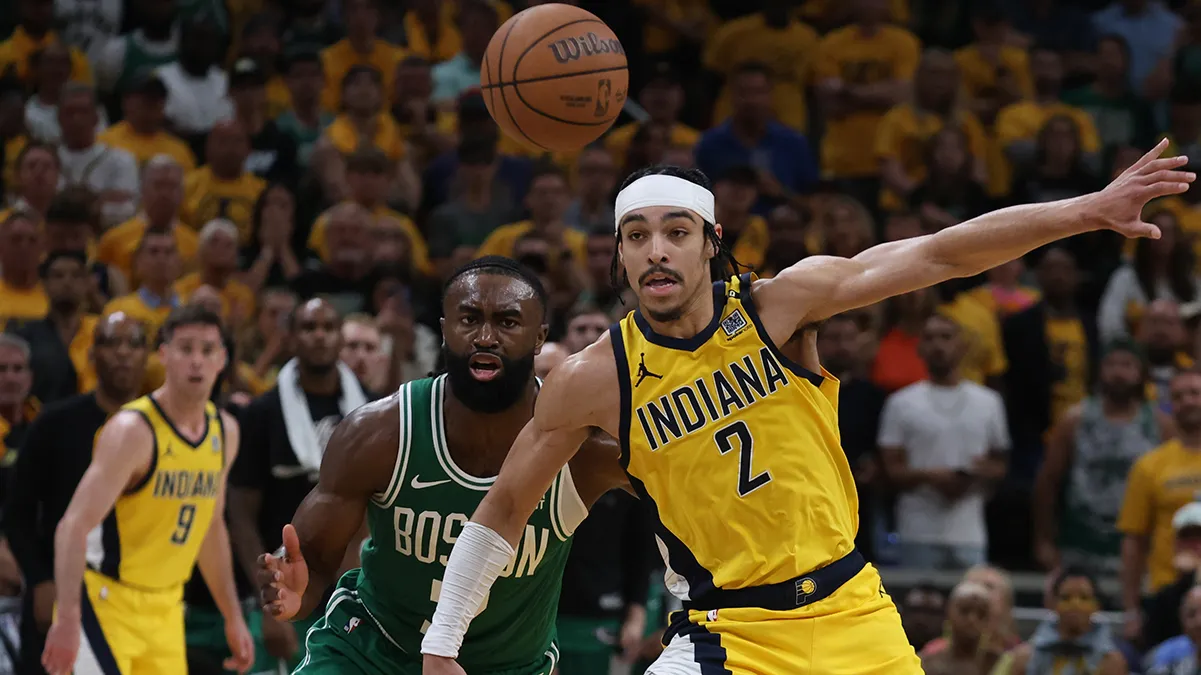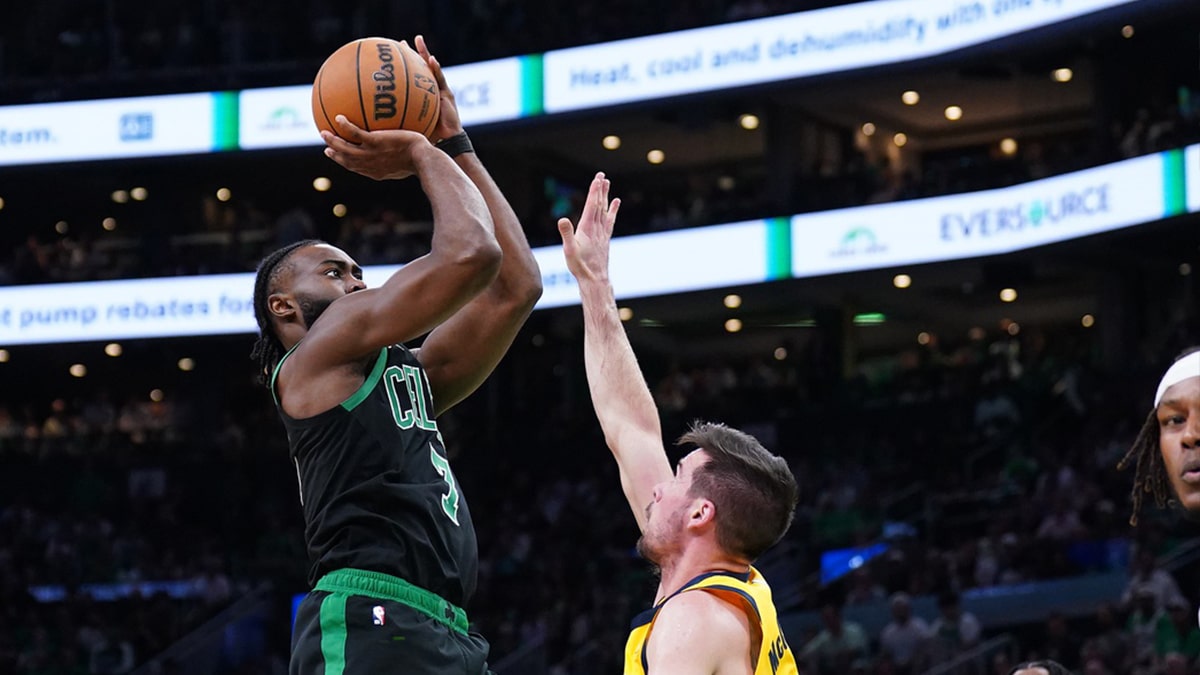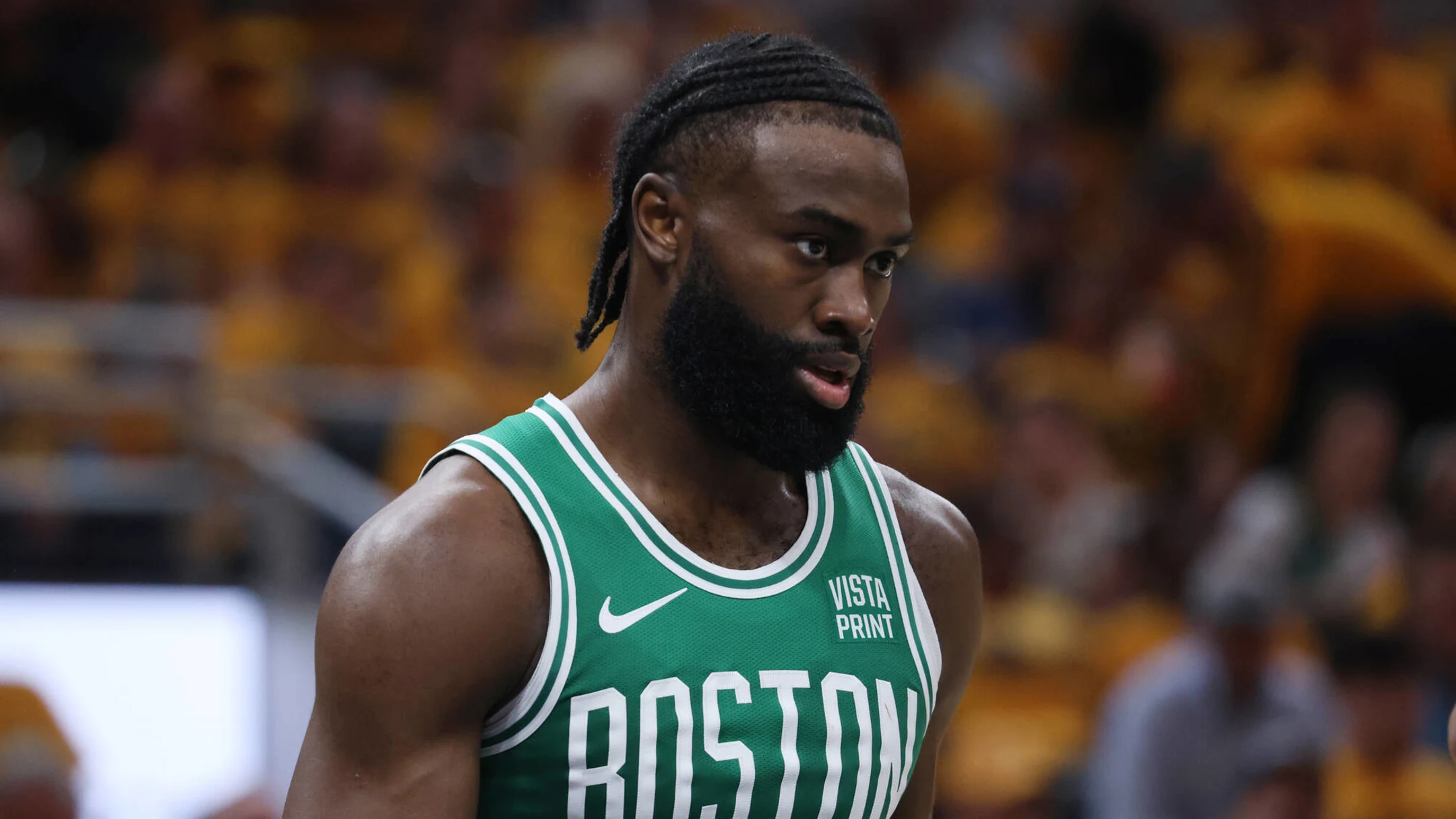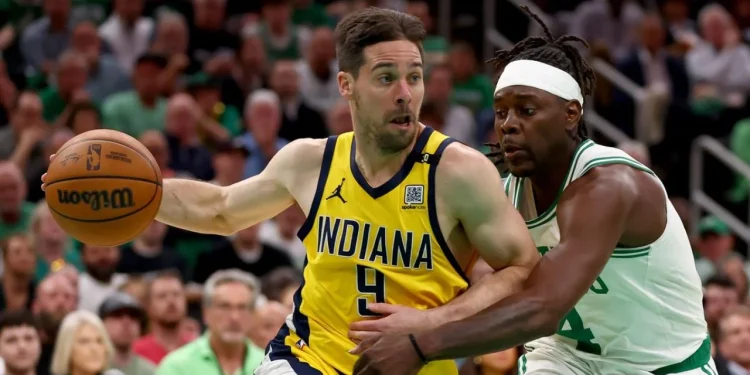Jaylen Brown’s defensive move on T.J. McConnell has ignited a heated debate among fans and analysts. The play, which resulted in McConnell’s injury, has everyone questioning whether it was a flagrant foul or just an aggressive defense. As opinions clash, this incident highlights the fine line between intense competition and foul play in the NBA.
In the high-stakes atmosphere of the NBA Eastern Conference Finals, every play counts, but some plays lead to controversies that ripple beyond the boundaries of the basketball court. Such was the case during Game 4 at Indianapolis’ Gainbridge Fieldhouse, where the Boston Celtics and Indiana Pacers faced off in a pivotal showdown.

Amid the intense competition, a particular incident involving Jaylen Brown of the Celtics and T.J. McConnell of the Pacers became the focal point of a heated debate across the sports community.
As the game progressed into its critical phases, Brown attempted a defensive play that ended with McConnell receiving an unexpected hit to the face while airborne. The impact sent McConnell crashing to the court, a moment that not only stunned him but also sparked an outcry among fans and commentators alike.
The play was subsequently reviewed, but the officials deemed it an “unfortunate” incident rather than a flagrant foul, a decision that has since been widely criticized.
Jaylen Brown’s Defensive Move: Was It a Flagrant Foul?
The NBA rulebook outlines clear criteria for what constitutes a flagrant foul, emphasizing the “severity of the contact” and “the potential for injury resulting from contact.” More specifically, it questions whether the player was engaged in a legitimate basketball play. In Jaylen Brown’s case, while his intent to harm may not have been evident, the reckless nature of his contact with McConnell’s head brought the play under scrutiny.
Critics argue that the lack of a flagrant call in this instance reflects a broader inconsistency in the enforcement of the NBA’s rules, particularly during the high-pressure environment of the playoffs. The debate centers around whether physicality should overshadow player safety, with many asserting that the officials missed an opportunity to set a precedent for fair play and player protection.

Impact of the Decision on Indiana Pacers
The immediate aftermath of the incident saw a visible shift in the game’s momentum. The Pacers, who had been maintaining control, found themselves grappling not only with the physical loss of McConnell for a period but also with the psychological impact of the contested call. The Celtics capitalized on this, mounting a comeback that culminated in a narrow 105-102 victory.
This pivotal moment raised questions about the potential impact of a Flagrant 1 penalty, which would have given the Pacers two free throws and possession of the ball. In a game decided by a mere three points, such a penalty could have decidedly influenced the outcome, prompting discussions about the fairness and implications of the referees’ decision-making process.

Reflecting on Fairness and Safety in Sports
The controversy surrounding the no-call in Game 4 goes beyond a single game or playoff series. It touches on the fundamental aspects of sportsmanship and the enforcement of rules designed to ensure player safety. As the NBA continues to evolve, the consistency of officiating in critical moments remains a significant concern for players, coaches, and fans alike.
For the Pacers and their supporters, this incident will likely linger as a poignant reminder of what might have been—a different outcome shaped not just by skill and strategy but by a contentious moment of play.
Source: Fansided









